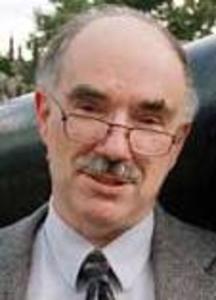The May 2 general election had more surprises than most voters realized. In our democracy, most Canadians voted to deny Prime Minister Stephen Harper a majority? No one warned that the Liberal party faced abject humiliation and imminent bankruptcy? Can New Democrats really rejoice at promotion to official Opposition? Can they possibly retain close to a million Quebec voters?
For Canadians as a whole, that may turn out to be the most risky issue of the latest general election.
If Quebec had embraced the NDP in 1962 or 1963 when the rest of Canada was trying to preserve or remove John Diefenbaker's Quebec sweep of 1958, fewer people would have been surprised. After all, the most surprising feature of the New Party's founding convention in Ottawa in August 1961 was the astonishing turnout of hundreds of Quebec delegates. For most Canadians it was their first notice of the political ferment that Quebec politicians soon christened the Quiet Revolution. For old CCFers who had organized the New Party movement, crossing the Ottawa River had seemed an impossible dream.
Now, it seemed, Quebecers had come to Ottawa to embrace social democracy.
One consequence was that the New Party's program was amended to include ideas that would become a Quebec program for the next generations, from official federal bilingualism to the notion of Canada as a country of two nations. The most radical break with the CCF's Regina Manifesto was recognition of the major provincial role in socialist reform, though that was what the CCF itself had done during its 20-year rule in Saskatchewan. Conventions end. Quebec delegates went home and things began to change. A Liberal government finished nationalizing privately owned hydro-electricity and started secularizing a church-controlled education system. In the excitement of its Quiet Revolution, Quebec discovered the appeal of achieving its own national sovereignty. In this excitement, the pro-federalist NDP seemed irrelevant to potential Quebec supporters, though the party attracted brilliant individuals like philosopher Charles Taylor and lawyer Robert Cliche. In all the years from 1961 to 2011, the NDP elected only two MPs in Quebec, ex-cabinet minister Thomas Mulcair and automobile critic Phil Edmonston, though thousands more ran as token candidates, confident they would be back at their old after election day.
In 2011, that expectation turned out to be wrong. Though no one outside Quebec seemed to notice, and few Quebecers admit it, the Bloc campaign was an utter failure. A flood of signs depicting a grumpylooking Gilles Duceppe claiming to speak for "Qc" seemed a little arrogant and underlined a suspicion that talk is cheap. NDP leader Jack Layton sounded cheerful and eager to get some good things done. The NDP candidates looked much as they always had been: invisible.
No one believed the polls. As Mulcair commented, he had never seen a poll vote, a joke about the utility poles that, in Quebec, bear the bulk of candidates' signs. The polls turned out, on the whole, to be right. Layton swept the province, much as Brian Mulroney had in 1984. It was election night's biggest surprise.
The hard news, of course, was that Harper had finally won a majority, though, in a Canada of two nations, he had swept English Canada and been thumped in French Canada. For Conservatives, this was historically unprecedented. John A. Macdonald, R.B. Bennett, Brian Mulroney, even Robert Borden, had formidable backing from Quebec. In his 1958 landslide, Quebec was delivered wholesale by then premier Maurice Duplessis. Harper's campaign in Quebec was a massive rejection by voters of his appeal for a majority government.
In federal politics, the two cultural nations are now split by the carpet running through the House of Commons. Close to a million Quebecers abandoned the sovereignist Bloc Québécois and took their votes to Layton and a federalist party. Stephen Harper now faces a hard choice. Can he suppress his own resentment at rejection and risk annoying his triumphant followers by giving Layton some tangible rewards for winning Quebec's support away from the Bloc? Or will his ego and his ideology take pride of place?
Quebecers will eagerly await the results of their May 2 votes. Like Harper, they have a choice. If NDP voters in Quebec feel disillusioned by their votes, they will cheerfully return to Pauline Marois's Parti Québécois, already primed to sweep Jean Charest's Liberals from office. In the process, returning NDPers will give the PQ some of that youthful demographic it has been losing in recent years, as well as the clear majority the Clarity Act now requires from any sovereignty referendum.
Harper and many of his voters may want to forget about Quebec and its demands. His postelection pledge to remember all Canadians, including those who voted against him, may, for the sake of Canada, be the most important words he has ever uttered.
***
Desmond Morton is an emeritus professor of history at McGill University and founding director of McGill's Institute for the Study of Canada.

















Laissez un commentaire Votre adresse courriel ne sera pas publiée.
Veuillez vous connecter afin de laisser un commentaire.
Aucun commentaire trouvé